MSF Aliansi Filantropi Perkuat Kolaborasi Lintas Sektor untuk Percepatan Pengentasan Kemiskinan 2026
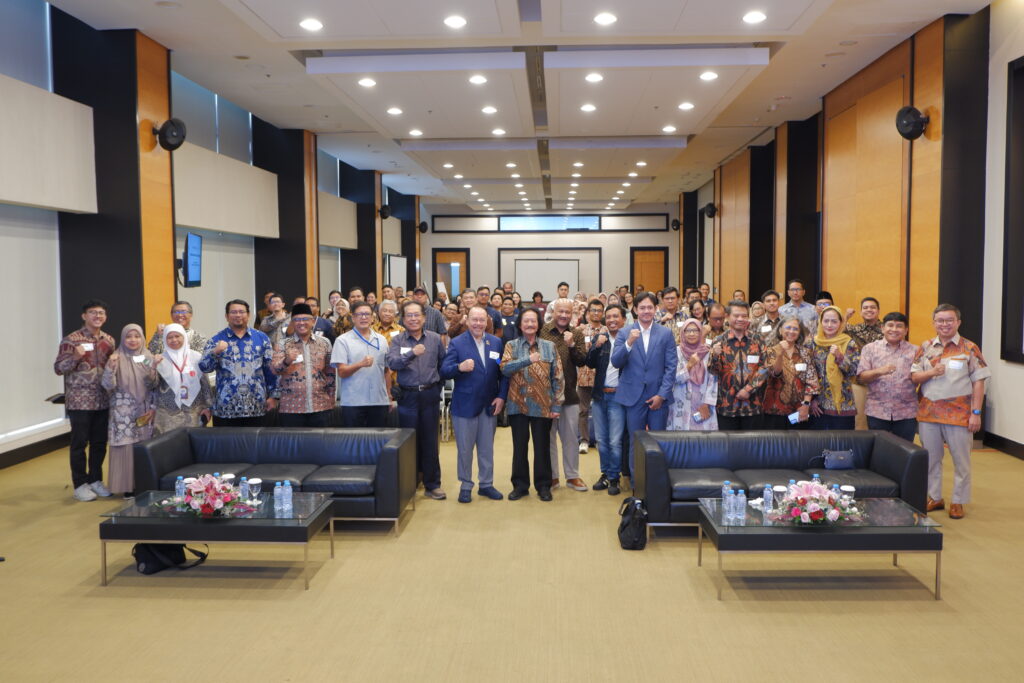
Multi-Stakeholder Forum (MSF) Aliansi Filantropi menegaskan komitmennya dalam mempercepat pengentasan kemiskinan melalui penguatan kolaborasi lintas sektor. Komitmen ini diwujudkan melalui penandatanganan Nota Kesepahaman (MoU) serta penyelenggaraan Workshop Program Lintas Sektor yang melibatkan filantropi, sektor swasta, pemerintah, akademisi, dan masyarakat sipil. MSF Aliansi Filantropi hadir sebagai platform kolaboratif untuk menjawab tantangan kemiskinan yang bersifat multidimensional dan […]
Perkuat Ekosistem Filantropi Jawa Timur, Perhimpunan Filantropi Indonesia Resmi Meluncurkan Chapter Surabaya
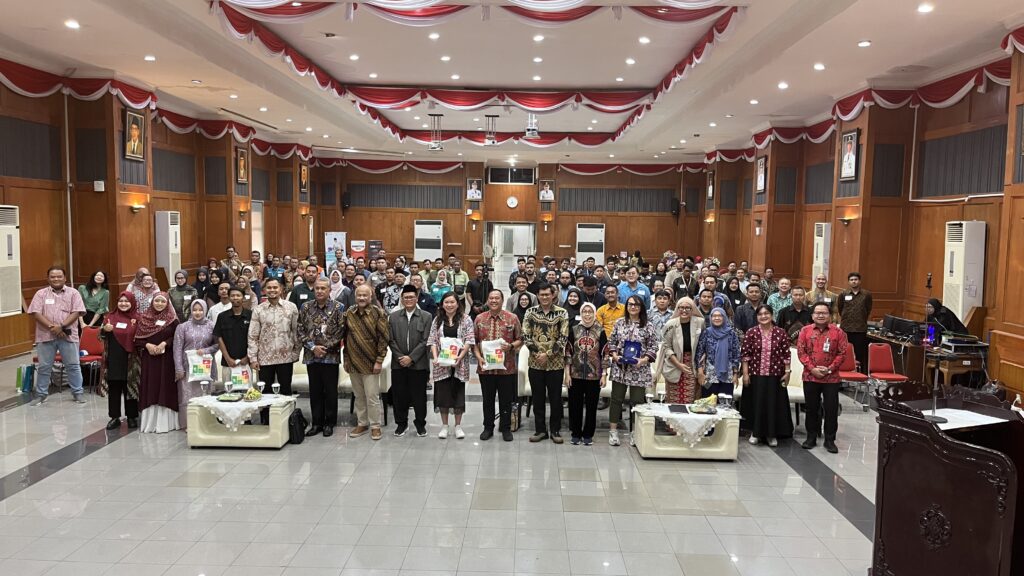
Surabaya, 22 Januari 2026 – Perhimpunan Filantropi Indonesia (PFI) secara resmi meluncurkan PFI Chapter Surabaya sebagai langkah strategis untuk memperkuat peran dan dampak filantropi di Jawa Timur dan sekitarnya. Peluncuran ini menandai komitmen PFI dalam memperluas jejaring kolaborasi lintas sektor guna mendorong pembangunan berkelanjutan yang inklusif dan berbasis kebutuhan daerah. Kegiatan peluncuran yang diselenggarakan di […]
Menyelamatkan Bumi: Bagaimana Program Filantropi Membantu Lingkungan dan Iklim

Oleh: Mohammad Zuhair, Wakil Ketua Bidang III Badan Pengurus Perhimpunan Filantropi Indonesia Isu lingkungan hidup dan iklim adalah permasalahan yang tidak bisa dihindari dan menjadi salah satu program Perhimpunan Filantropi Indonesia. Mulai dari masalah pencemaran sungai, polusi udara di perkotaan, sampah, hilangnya ruang hijau dan lain sebagainya. Sejumlah masalah ini mengakibatkan kerusakan lingkungan namun upaya […]
Budaya Filantropi dalam Gerak Kemanusiaan Keluarga Wahid
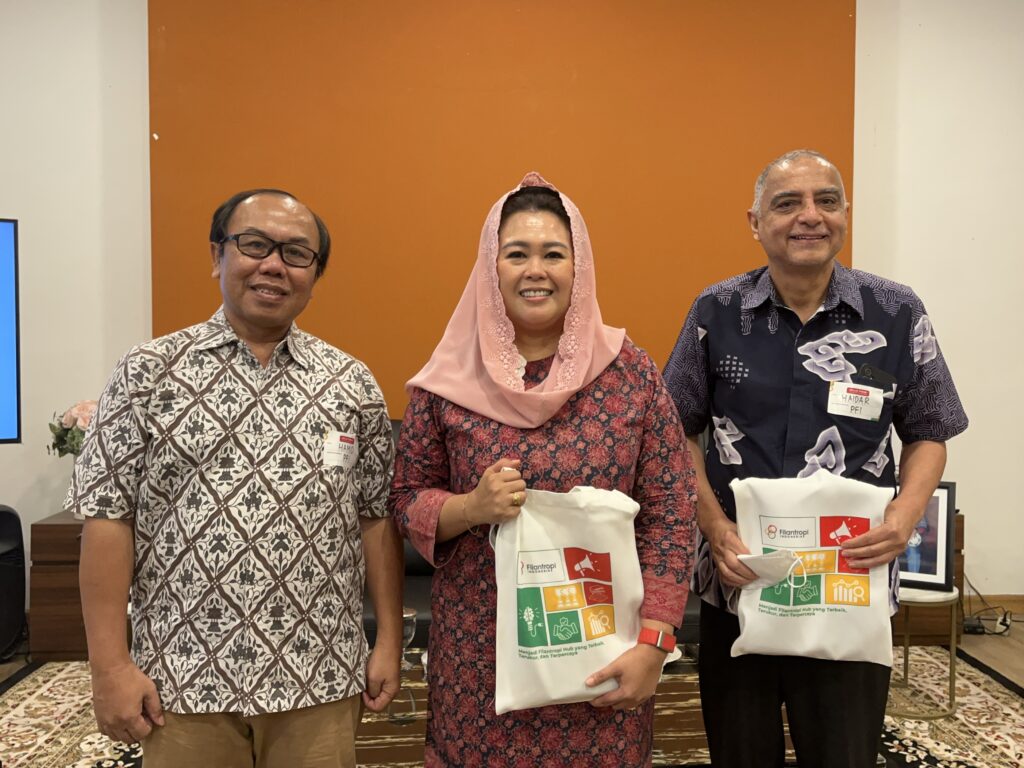
Jakarta, 2 Desember 2025 – Perhimpunan Filantropi Indonesia menyelenggarakan Philanthropy Sharing Session ke 49 dengan tema “Budaya Filantropi dalam Gerak Kemanusiaan Keluarga Wahid”. Diskusi berlangsung di Aula Griya Gus Dur dan menghadirkan Yenny Wahid, Executive Director Wahid Foundation serta Dr. Ir. H. Haidar Bagir, M.A, Dewan Pakar Perhimpunan Filantropi Indonesia sebagai narasumber. Kegiatan ini menjadi […]
PFI Gelar Diskusi Pra-Peluncuran Chapter Surabaya untuk Perkuat Ekosistem Filantropi di Jawa Timur
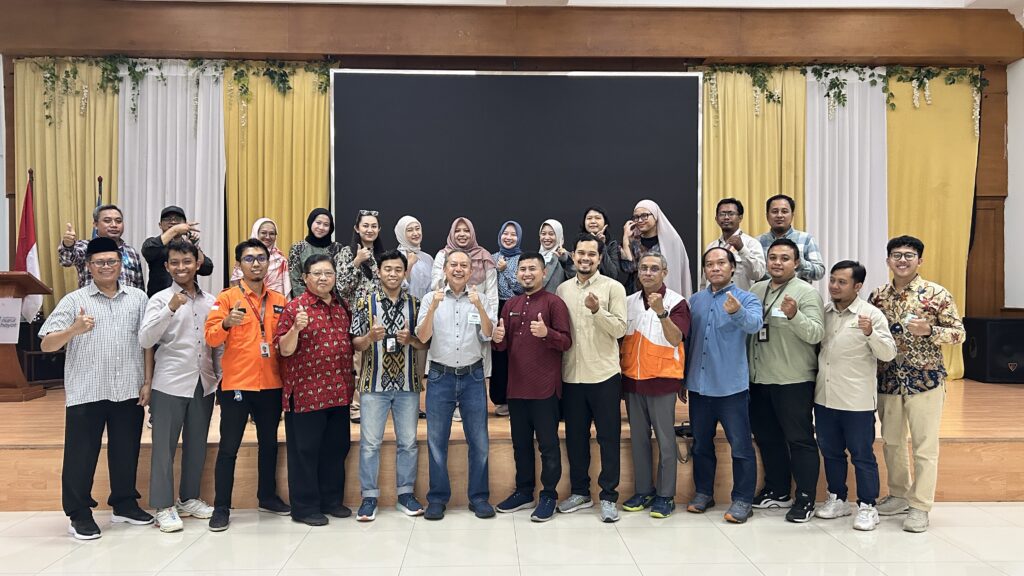
Surabaya, 26 November 2025 – Perhimpunan Filantropi Indonesia (PFI) menyelenggarakan Philanthropy Thought Leader (PTL) 22 bertajuk “Diskusi Pra-Peluncuran PFI Chapter Surabaya” yang didukung oleh Yayasan Nurul Hayat sebagai bagian dari agenda organisasi untuk memperkuat ekosistem filantropi di tingkat daerah. Surabaya akan menjadi Chapter kedua PFI setelah Makassar, sejalan dengan Rencana Strategis 2024–2027 yang menempatkan pengembangan […]
Peran Organisasi Filantropi dalam Transformasi Kesehatan di Indonesia
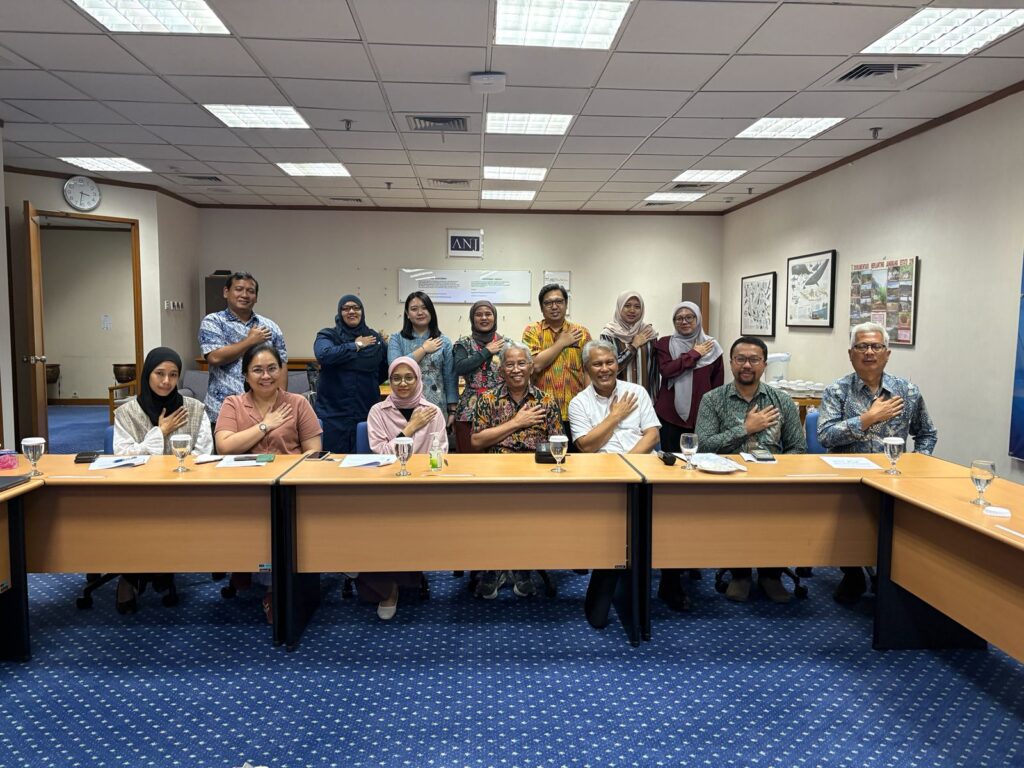
Jakarta, 26 November 2025 – Perhimpunan Filantropi Indonesia (PFI) melalui Klaster Kesehatan mengadakan diskusi terfokus bertema Peran Organisasi Filantropi dalam Transformasi Kesehatan di Indonesia. Kegiatan yang berlangsung di Kantor Yayasan Tahija, Graha Irama Kuningan ini mempertemukan para ahli, anggota klaster, serta pengurus PFI untuk memahami dinamika kebijakan transformasi kesehatan dan memetakan kontribusi strategis sektor filantropi. […]
Memperkuat Kemitraan Strategis untuk Ekosistem Filantropi Pendidikan yang Berkelanjutan
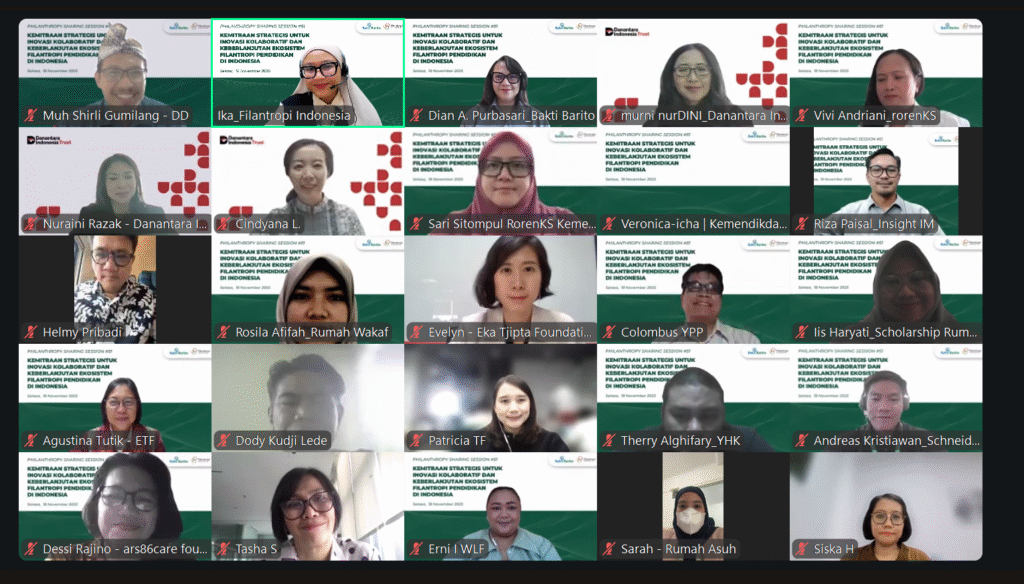
Jakarta, 18 November 2025 — Perhimpunan Filantropi Indonesia (PFI) melalui Klaster Filantropi Pendidikan (KFP) menyelenggarakan Philanthropy Sharing Session (PSS) #51 bertajuk “Kemitraan Strategis untuk Inovasi Kolaboratif dan Keberlanjutan Ekosistem Filantropi Pendidikan di Indonesia.” Forum ini menghadirkan dialog mendalam antara pemerintah, filantropi, dan lembaga nirlaba untuk memperkuat ekosistem pendidikan nasional melalui kolaborasi, ko-kreasi, dan aksi kolektif […]
Mendorong Sinergi Kolektif melalui Revitalisasi Klaster dan Forum Multi-Pihak
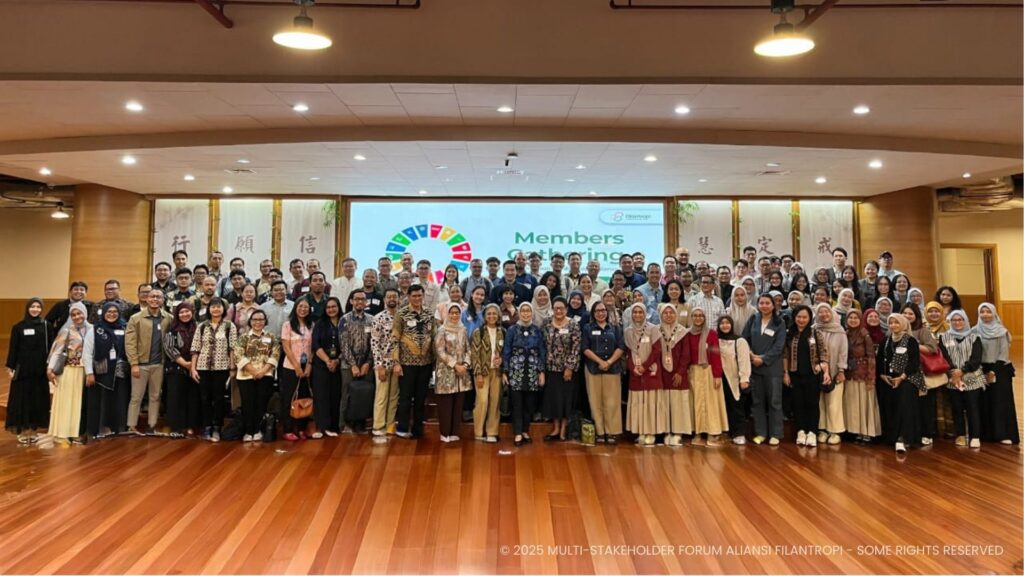
Jakarta, 12 November 2025 — Perhimpunan Filantropi Indonesia (PFI) menyelenggarakan Members Gathering bertajuk “Sinergi untuk Dampak: Revitalisasi Klaster dan Forum Multi-Pihak sebagai Fondasi Aksi Kolektif, Kolaborasi, dan Ko-Kreasi Tujuan Pembangunan Berkelanjutan.” Pertemuan ini menjadi ruang strategis bagi anggota PFI untuk melakukan konsolidasi, memperkuat jejaring, serta menyelaraskan arah kolaborasi menuju PFI 2026. Acara yang berlangsung di […]
Dampak Filantropi terhadap Pembangunan Berkelanjutan
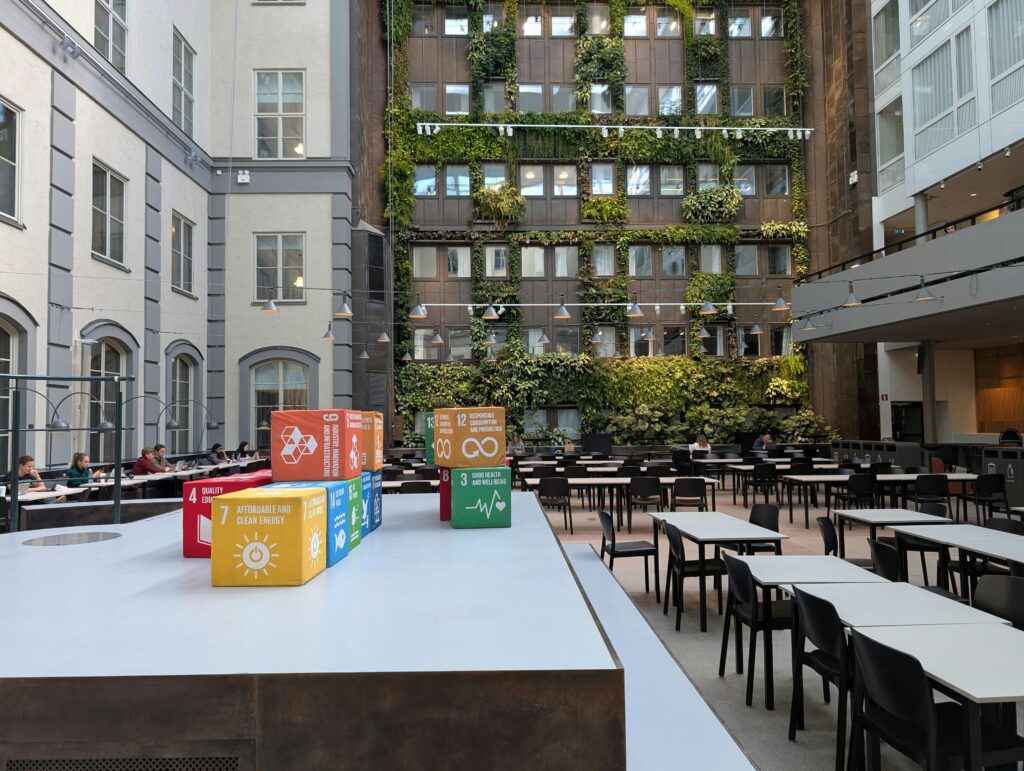
Oleh: Dian A. Purbasari, Wakil Ketua Badan Pengurus Perhimpunan Filantropi Indonesia Pada tahun 2015, ketika 17 tujuan pembangunan berkelanjutan (Sustainable Development Goals atau SDGs) ditetapkan, tahun 2030 masih terlihat sebagai target yang realistis untuk dicapai dalam jangka waktu 15 tahun ke depan. Meskipun pandemi COVID-19 yang berlangsung dari akhir 2019 hingga awal 2021 sempat memperlambat […]
Menuju Perubahan Sistemik dalam Pendidikan: Belajar dari Pengalaman Brasil
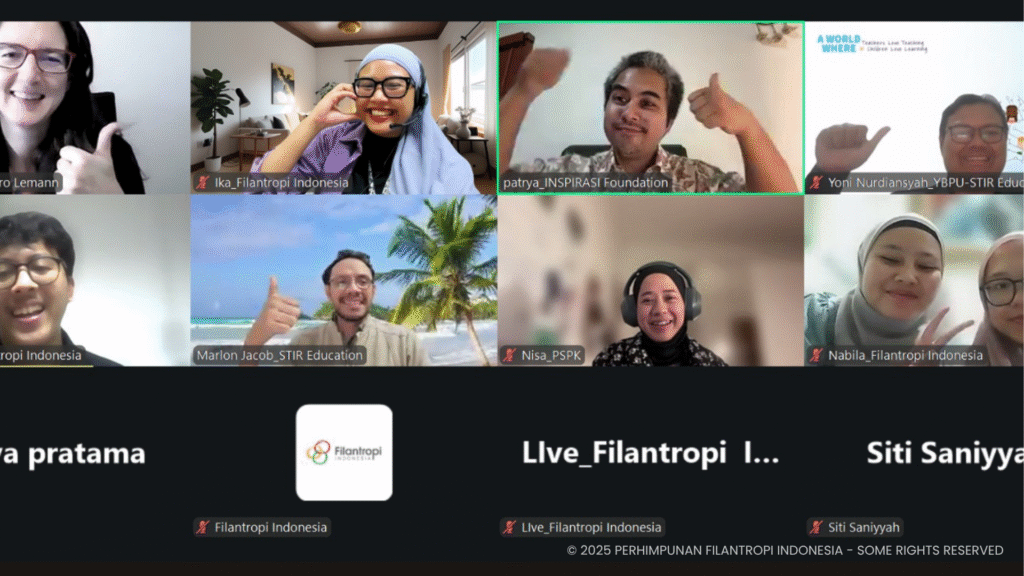
Jakarta, 10 Oktober 2025 — Philanthropy Learning Forum (PLF) #74 menghadirkan diskusi mendalam bertema “When Training is Not Enough: The Journey Towards Systemic Change in Education, A Lesson from Brazil.” Forum ini mengajak para pemangku kepentingan di sektor pendidikan dan filantropi untuk meninjau kembali pendekatan pengembangan kepemimpinan sekolah yang selama ini masih bersifat terfragmentasi, menuju […]


